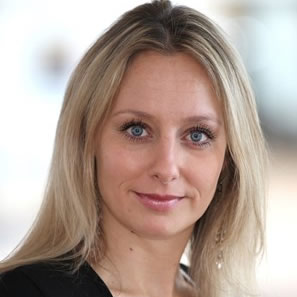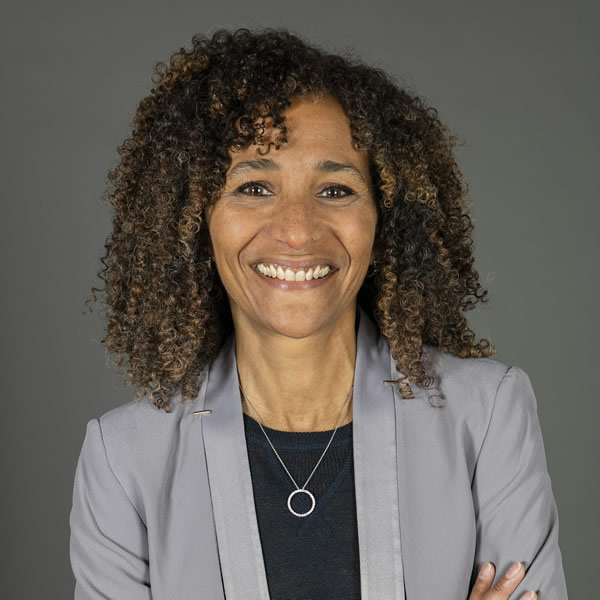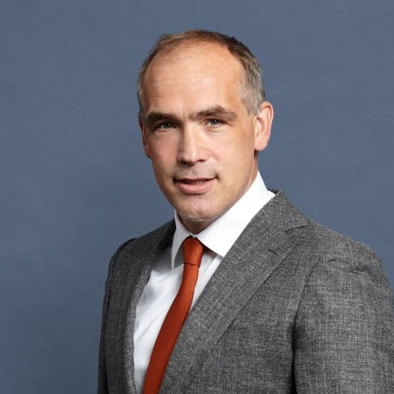Join us for a conversation on Cross-Atlantic Data Transfer Challenges in a Post ‘Schrems II’ Era
We have invited the Dutch Data Protection Authority (Autoriteit Persoonsgegevens) and Microsoft to explore the impact of the Court of Justice of the European Union’s Decision on businesses of all sizes and what companies can do if they are held responsible for their government’s actions.
The Court’s “Schrems II” decision in 2020 reaches almost every company that touches EU residents´ personal data. It was followed nearly a year later by the long awaited revised Standard Contractual Clauses and the European Data Protection Board’s final recommendations on additional measures entities can put in place in order to lawfully conduct business across the Atlantic.
This data protection matter is not confined to just the privacy team; corporate leadership needs to understand the issues and make informed choices.
Among the topics for discussion are:
- Actions companies can take;
- Role of the regulators;
- Consequences for continuing to transfer EU personal data to the US;
- Practicalities of holding private enterprise responsible for government actions;
- Whether storing data only in the EU solves the issues raised in the Schrems II decision;
- Whether data localization is practical in a technological world eager to conduct trade.
Who should attend this webinar?
This program is organized for General Counsels / Inhouse legal teams of transatlantic businesses.
Executive leadership is also welcomed to join.
REGISTER HERE
Speakers
-
 Aleid WolfsenChair, Dutch Data Protection Authority / Autoriteit Persoonsgegevens (AP)
Aleid WolfsenChair, Dutch Data Protection Authority / Autoriteit Persoonsgegevens (AP)Aleid Wolfsen has been chair of the Dutch Data Protection Authority (Dutch DPA) since 2016. He had previously been a member of the Dutch DPA’s advisory board. In 2019 the European Data Protection Authorities chose Aleid Wolfsen to be Deputy Chair for the EDPB.
Prior to his appointment as Dutch DPA chair, Mr Wolfsen held various positions in politics and the judiciary. Between 1998 and 2001 he was a judge in Amsterdam and after that, until the beginning of 2002, he was vice-president of the district court of Haarlem.
From May 2002 until 2008 Aleid Wolfsen was a member of the House of Representatives for the Labour Party (PvdA), during which time he was involved in Justice and Antillean Affairs. He was the mayor of the City of Utrecht from 2008 until 2012. From 1979 until 1994 Aleid Wolfsen was working in various roles with the prosecution for the public prosecutor and with the jurisdiction court in Zwolle. He combined his work with a Law study at the University of Groningen, which he completed in 1993. After that, he worked at the Justice Department as, among others, a project leader for the Revision of the Judicial organization. -
 Julie BrillChief Privacy Officer, Corporate Vice President, and Deputy General Counsel of Global Privacy and Regulatory Affairs, Microsoft
Julie BrillChief Privacy Officer, Corporate Vice President, and Deputy General Counsel of Global Privacy and Regulatory Affairs, MicrosoftAs Microsoft’s chief privacy officer, corporate vice president, and deputy general counsel of Global Privacy and Regulatory Affairs, Julie Brill leads the company’s work at the forefront of the tech policy, regulatory, and legal issues that underpin the world’s digital transformation. Brill directs Microsoft’s privacy, digital safety, responsible AI, standards, accessibility, and governance operations and solutions and is the central figure in Microsoft’s advocacy for privacy protections around the globe.
While at Microsoft, she spearheaded Microsoft’s global adoption of the European Union’s General Data Protection Regulation (GDPR) and continues to lead privacy operations and solutions for the company.
Prior to her role at Microsoft, Brill was nominated by President Barack Obama and confirmed unanimously by the U.S. Senate. She served for six years as a commissioner of the U.S. Federal Trade Commission (FTC), focusing on issues of critical importance to consumers, including privacy, fair advertising practices, fighting financial fraud, and maintaining competition in all industries, including health care and technology.
At the FTC, Brill was named “the Commission’s most important voice on Internet privacy and data security issues.” She was also recently named a Top Data Privacy Influencer of 2020, among other honors.
In addition to her role at Microsoft, Brill is active in civil society, serving as a board member of the International Association of Privacy Professionals, a board member of the Center for Democracy and Technology, governor for the Ditchley Foundation, and co-chair of Business at the Organization for Economic Cooperation and Development’s Committee for Digital Economy Policy.
Brill graduated magna cum laude from Princeton University, and from New York University School of Law, where she held a Root-Tilden Scholarship for her commitment to public service.
-
 Kim LucassenPartner, lawyer, member of the Competition & Regulatory practice group, Loyens & Loeff
Kim LucassenPartner, lawyer, member of the Competition & Regulatory practice group, Loyens & LoeffKim specialises in pharmaceutical law, privacy law, regulated markets and (international) contracts. Kim heads the Loyens & Loeff’s Life Sciences Team and the Data Protection & Privacy Team. Kim is a member of the Privacy Law Association and of the International Association of Privacy Professionals (IAPP).
-
 Maia T. SpilmanPrivacy attorney spear-heading the General Counsel Committee for EACC Netherlands
Maia T. SpilmanPrivacy attorney spear-heading the General Counsel Committee for EACC NetherlandsMaia Spilman is a Data Privacy Attorney licensed in New York and a Certified Information Privacy Professional. Born and raised in New York City, Maia now lives in the Netherlands where she works as Senior Privacy Counsel for BCD Travel Services.
Maia began her career as a transactional Intellectual Property attorney. She pivoted her practice area to Data Privacy in 2012. Prior to joining BCD Travel, Maia worked as a data privacy subject matter expert at EY in the Netherlands. In the US, she was in-house counsel for another multi-national corporation and a start-up. She also had her own practice where clients included pharmaceutical companies, ecommerce and service companies, digital marketing companies, and she served as privacy counsel to other law firms. Maia co-chaired the Information Technology and Cyber Law Committee of the New York City Bar Association and served as a panelist on privacy matters in various professional forums.
She received her Juris Doctorate from Northeastern University in Boston and her Bachelor of Arts degree in English and Fine Arts from Syracuse University. The International Association of Privacy Professionals provided her certification as a CIPP/US in 2012 and CIPP/E in 2021.
-
 Martin HemmerPartner, lawyer, Head of the Intellectual Property, IT & Data Protection practice group, AKD
Martin HemmerPartner, lawyer, Head of the Intellectual Property, IT & Data Protection practice group, AKDMartin Hemmer is a partner and lawyer at AKD who works primarily at the interface between law and technology. The emphasis is on innovative IP (copyright, database right and patent right) and ICT in combination with media and privacy. Martin advises and litigates regularly on ICT matters relating to contracts for (cloud) service provision, infringements of database rights, software copyright as well as failed implementations.
Martin’s main clients operate in the IT and media sector. He also gives privacy-related advice to (semi-)public organisations. Martin’s clients appreciate his practical and solution-oriented approach.
Martin enjoys the legally challenging world of the Internet and law. In that respect, privacy is an important theme for him. He regularly publishes and gives lectures on privacy-related issues. He has also assisted various organisations in connection with enforcement procedures by the Dutch Data Protection Authority [Autoriteit Persoonsgegevens].
Martin regularly sees organisations struggling to get a grip on the growing quantity of personal data that they process. The ever-developing technology offers possibilities but also implies risks. New technological possibilities such as Artificial Intelligence and big data applications can, for example, decode datasets which were considered anonymous.
The threats facing data-processing can have major consequences for the obligation of the controller. What is more the GDPR still leaves lots of room for interpretation and this can lead to uncertainty. Martin enjoys solving such legally challenging privacy issues in a practical way.
Another of Martin’s focal areas is on conflicts regarding unlawful communication on the Internet and elsewhere. These can lead to disputes between competitors (misleading/unauthorised comparative advertising), between citizens themselves and between citizens and government bodies. How far is someone allowed to go when it comes to using the image of a third party and expressing online criticism? Martin can help you find the answer to questions like these.

